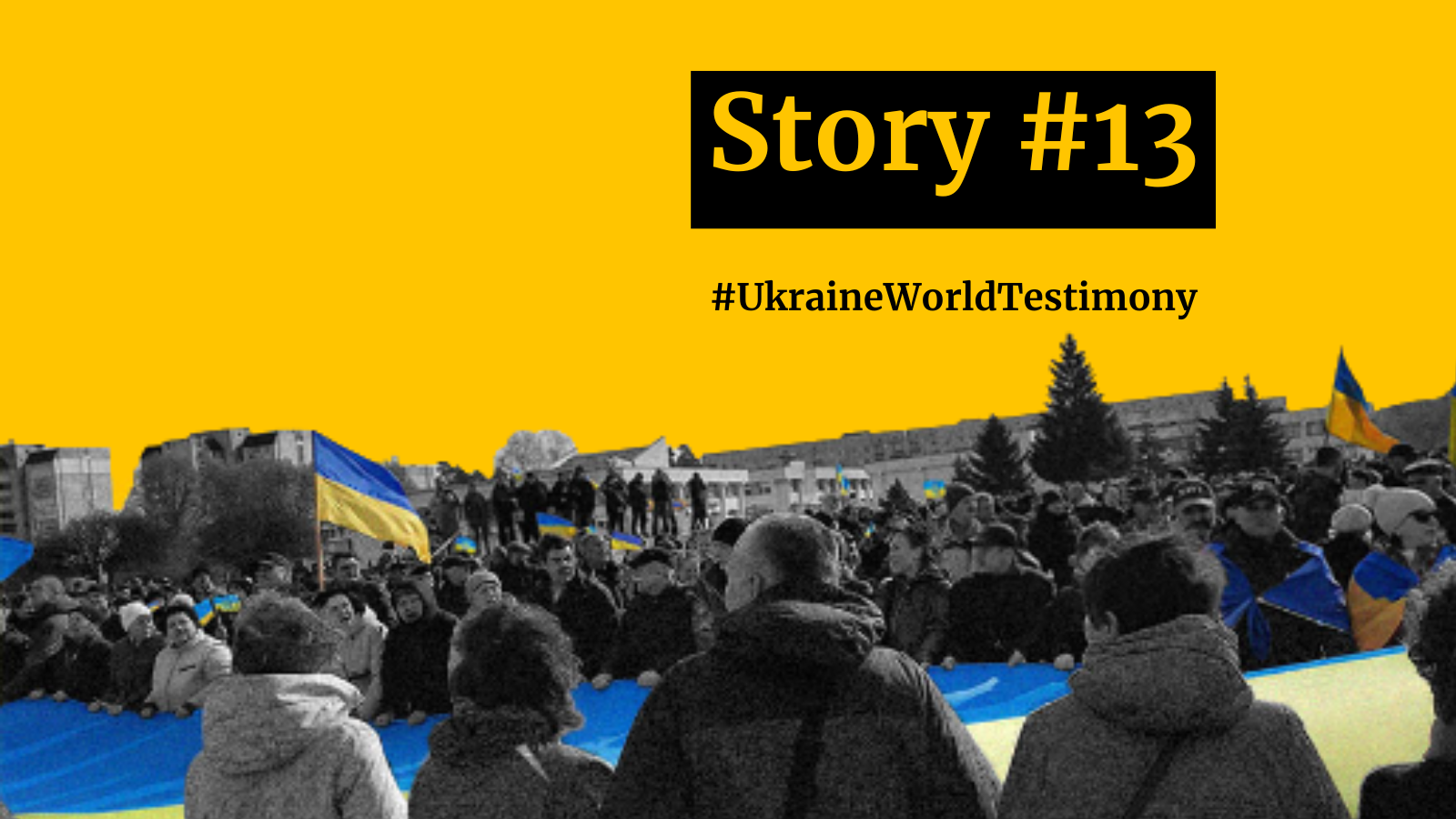
After the first explosions on the morning of February 24, Polina and her daughter Aglaia packed up and left Kyiv for Slavutych, a small town 50 km from the Chornobyl Nuclear Power Plant, where their family lives.
Slavutych is a town in the depths of pine forests, several kilometres away from the Belarusian border. Its population consists mainly of the nuclear power plant employees. The city has no strategic facilities, which is why Polina considered it a safe place to stay.
Shortly after their arrival, the family realized that they would be under a blockade: for security reasons, the only road to the town was blocked, and the forest nearby was mined. A few local supermarkets stopped working in the first 3-4 days.
Local farmers managed to deliver some milk, potatoes, mushrooms, and sometimes meat. The bread was baked on a small mill in Slavutych: it was grey, flat, and crumbled. There were 11 people living in Polina's parents’ house: 7 adults and 4 children. The whole family spent the next few days standing in crowded lines for up to 7 hours to buy some food. Some days there was nothing to buy.
Sometime later, Polina began to feel ashamed for being hungry. When she ate, she felt like she was stealing food from others. Later, when she was safe in Kyiv, it took her a while to understand that food was available, and you can buy it easily in the nearest supermarket.
When electricity was cut off in Slavutych at the beginning of March, the family spent the whole week cooking and heating water on a fire in their yard. They used to go to bed early, trying to hear how close the Russian troops were.
The assault on Slavutych lasted for 3 days. The Russians fired at the soldiers of territorial defence forces and civilians. When Russian soldiers finally entered the city, they began to rummage through the houses, looking for the Ukrainian military.
Fearing the Russians coming to their house, Polina's family decided to hide some food. Polina also deleted some videos and photos on her phone, re-uploaded her Facebook avatar without the Ukrainian flag on it, and deleted a lot of messages and other information that could have harmed her or her family if they came under Russian occupation.
After Slavutych was occupied, Polina decided that she and her daughter would try to leave the town. The evacuation route passed through the war zone and was extremely dangerous.
“We prepared to leave, cutting old sheets for tourniquets. I wrote Aglaia’s blood type and our phone numbers on her hand. We hid money and phones. It felt like we were going to die”, Polina says.
Nevertheless, the evacuation went smoothly. The Russian checkpoints were empty. There were no shootings or fights along the road. After they reached Kyiv in 6.5 hours, Polina felt relieved. She decided to go abroad for the safety of her daughter.
The Russian military forces occupied Slavutych for 9 days. Soon after Polina and her daughter left the town, some humanitarian aid arrived. Polina’s parents were able to stock up on food, and her dad returned to work.
